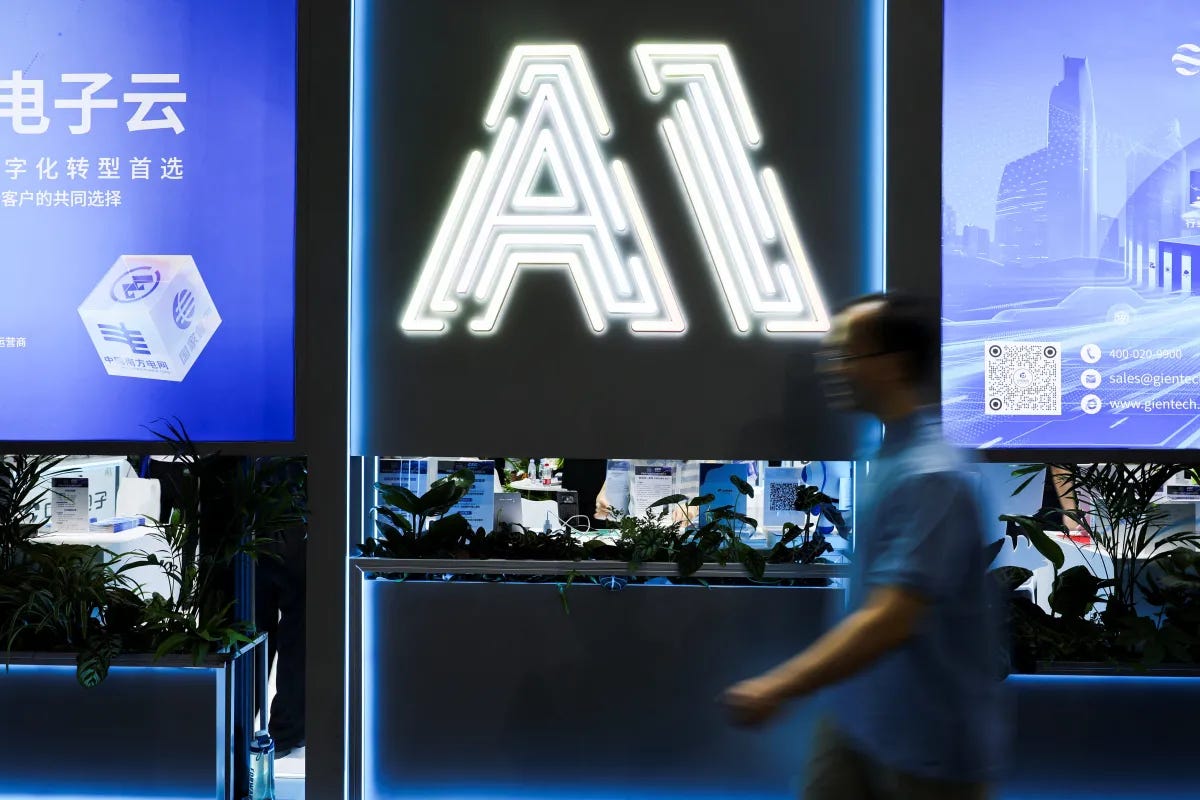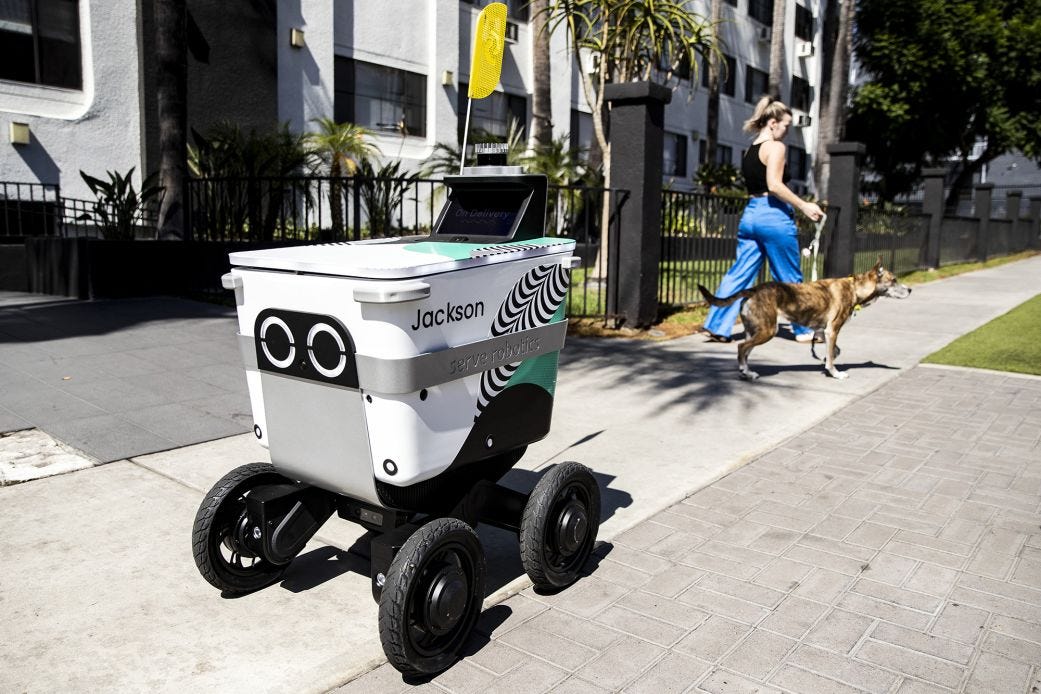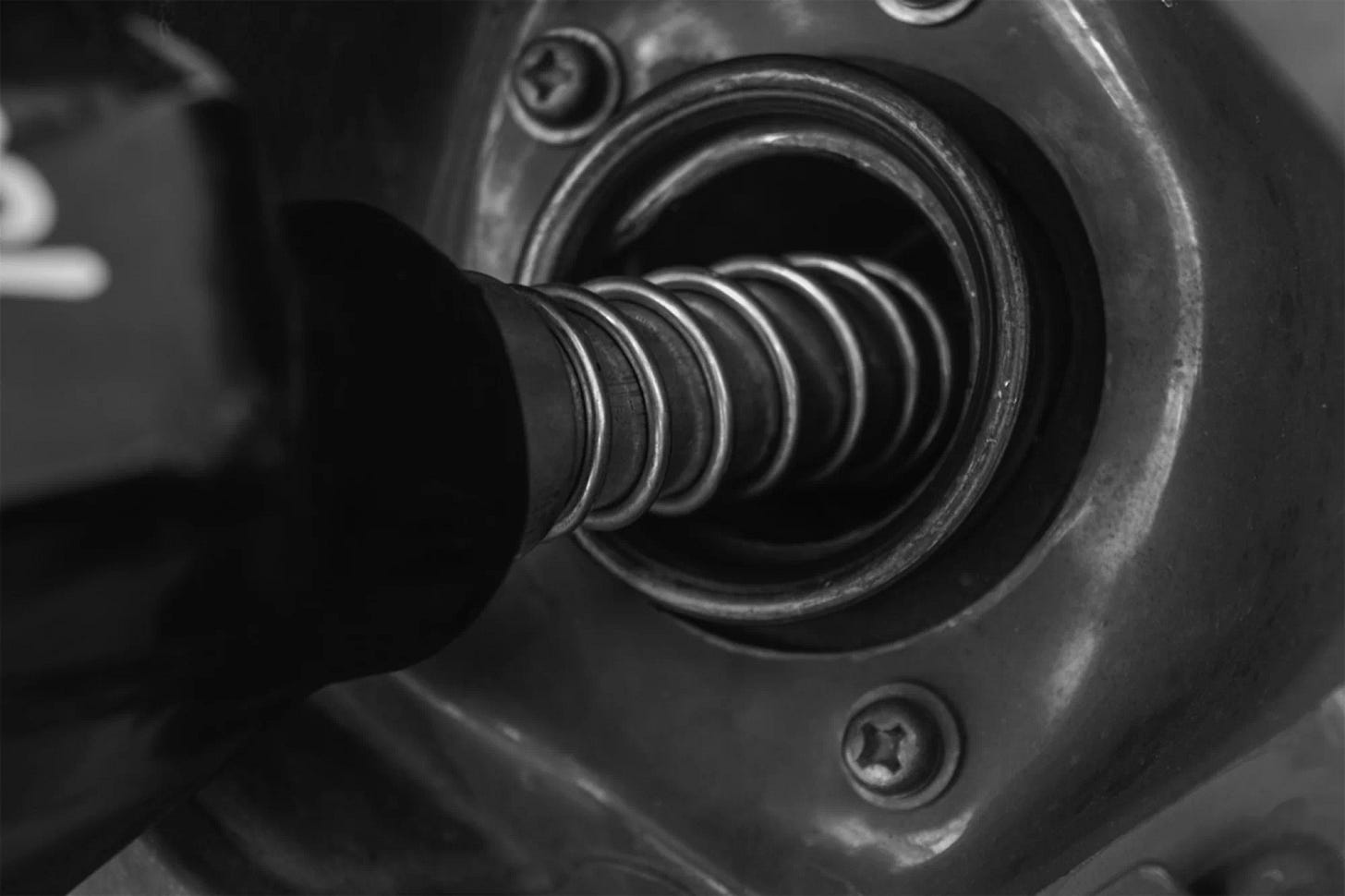Five Things: AGI, Silicon Valley, Eat the Rich Populism, Delivery Robots, Pushing the Car Uphill
It's Sunday. Read this now.
Hello and welcome back to Five Things!

On Friday, Germany celebrated the 35th Day of German Unity and nobody really noticed. It’s a shame, but this holiday has never been the most emotional one. The Berlin Wall was opened on November 9, 1989 and while on November 9, 1918 the German Republic was declared, we cannot use November 9 for a day of celebration due to November 9, 1938, when the Nazis launched the pogrom against the jews in Germany. But we could have taken the old West German Day of German Unity, which was set on June 17 to commemorate the day when workers in East-Berlin rose up in 1953. I always like that holiday, but then it got moved to October 3 to commemorate the day in 1990 when East and West Germany signed a treaty. The project of German unity is still evolving and people seem to be a bit tired of each other and complain a lot about the other side. I actually think that we achieved a lot in these 35 years. And I think we have to accept that a country with more than 80 million people will never be homogenous and will always have parts that are different, for whatever reasons. Whenever I am in the Nordics, I tell people that I’m from Hamburg, which is the southernmost tip of the Nordics and that the cultural differences between Hamburg and Munich are bigger than between Hamburg and Copenhagen, Stockholm or Oslo. That’s of course a slight exaggeration, but I do think that we have to accept that Germany is a big country with lots of different pecularities. Right now, the uniting factor is that everybody is complaining. Germany is in a rut right now and the overall feeling is that everything is going down the drain and that Germany itself is helpless in a downward spiral. When people from the outside are looking in, they find a country that has the third biggest economy in the world, pretty good infrastructure, good schools and universities, good healthcare, alright weather, a solid approach to get to net zero and so much more to offer. But we want perfect, not just good, but at the same time we don’t want to make an effort to improve the situation, we just want to complain and wallow in our sorrow that everything is going downhill. Interesting situation. Right now we see the government spendings excel like never before and the biggest companies are still not taking their feet off the brakes. I’m pretty sure that the German mood and the German economy will improve rapidly as soon as the execs get off their butts and start investing again in innovative products, better education for their employees, embrace the constant technological change and finally stop complaining.
Yeah, I know, it’s that easy! And German re-unification is the biggest gift for us. I grew up 10km west of the border and I am forever grateful that that deadly border got torn down and that the people in East Germany could shake off living in a dictatorship. 35 years later we are still not perfect, but the country as a whole is making great progress, we just have to start accepting the fact that good things take time.
Here are this Sunday’s Five Things - enjoy!
The Cost of the AGI Delusion
There is no doubt that AI is a very powerful invention. But when it comes to AGI, the hype has grown out of proportion. Given the limitations of existing systems, it is unlikely that superintelligence is actually imminent, even though AI systems continue to improve. Some prominent computer scientists, such as Andrew Ng, have questioned whether artificial general intelligence will ever be created. For now, and possibly forever, advances in AI are more likely to be iterative, like other general-purpose technologies.
It is so much smarter to think about the next iterations like Agentic AI instead of building ever bigger LLM platforms that cost a gazillion dollars.
I Thought I Knew Silicon Valley. I Was Wrong
It should be the best of times for the tech world, supercharged by a boom in artificial intelligence. But a shadow has fallen over Silicon Valley. The community still overwhelmingly leans left. But with few exceptions, its leaders are responding to Donald Trump by either keeping quiet or actively courting the government. One indelible image of this capture is from Trump’s second inauguration, where a decisive quorum of tech’s elite, after dutifully kicking in million-dollar checks, occupied front-row seats.
It’s appalling how the tech billionaires in Silicon Valley kissed the ring of wannabe despot Donald Trump.
Democrats Are in Crisis. Eat-the-Rich Populism Is the Only Answer.
It’s a simple recipe, really: a scorching economic message delivered by political outsiders standing up to the powerful. The villains in this narrative — and it’s essential to have villains — are the elites at the top of a broken system. Neither Mr. Mamdani nor Mr. Osborn dwelled on cultural issues; instead, they concentrated on subjects like increasing wages and affording a home. Although their signature positions have strong public backing, their platforms are more than just a grab bag of whatever does best in the polls. They tell a story that reframes the debate, enlisting voters in a battle between the many and the few, with stakes that reach into everyday life.
I just read (or rather listened to) Left Adrift by Timothy Shenk and I do think his argument is compelling, even though I know that many voters still believe they will be billionaires soon and therefore don’t want to tax the rich…
Food delivery robots have human names and blinking eyes. But they’re not our friends
I’ve identified my fear of these ostensibly harmless bots: As the use of this technology spreads, will we depend more on robots than people — and what will become of the people whose livelihoods are affected by our antisocial practices? Will AI become so ingrained in the ways we think, create, communicate and live that it’ll be impossible to extricate ourselves from it. AI is even being tested in military operations. And yet, for all its potentially sinister uses, I’m more worried about what it’ll turn us into.
I remember when Estonian delivery robots where being tested around my office about 10 years ago. I haven’t seen them since. While I admire the technological aspects of delivery robots, I think they solve a problem that has already been solved to our satisfaction. And I love it how Seth Rogan as Will in Platonic always kicks delivery robots whenever he sees one. We need to keep jobs for people and cannot afford to outsource everything to robots.
About That Time I Pushed a Car Uphill
I want to pause here and point out the obvious: According to the laws of physics, as soon as Darius put the car in neutral, it would begin to roll back. With me behind it. A 2002 Corolla sedan weighs 2,503 pounds. At my heaviest I’m a little under 190. I played college football and am pretty strong from the waist up, but the car accident had fractured my right hip and crushed my sciatic nerve, and the muscles in my legs had atrophied and never fully regained their strength. (This is why I hardly ever wear shorts.) The point is, there was no reason—other than a genetic predisposition toward stubbornness—for me to believe I could push that car up a hill. The best-case scenario should have been that I jumped out of the way as soon as the car began rolling backward, and Darius, who had never driven anything bigger than a go-kart, quickly realized what was happening and hit the brakes, even though I’d just told him not to.
The worst-case scenario is not one I like to think about.
What a wonderful story, not just about cars and the laws of physics, but also about life, parenting and all the rest.
That’s it. Have a great Sunday! If you missed last Sunday’s edition of Five Things, have a look here:

Five Things: Stupidest Speech, ICE Detention Facility, Springfield, Chatbait, 25 Interesting Ideas
— Nico






